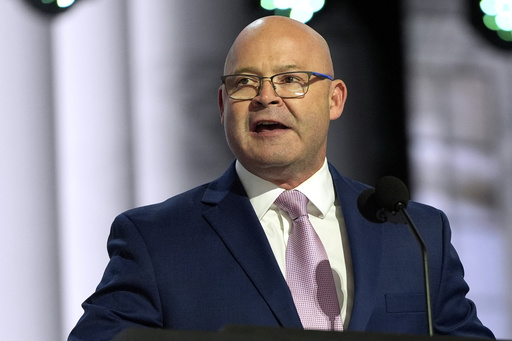Members of the Teamsters union are planning to hold a roundtable discussion with Vice President Kamala Harris soon. However, union President Sean O’Brien has not yet been invited to speak at the upcoming Democratic National Convention. The Teamsters, a 1.3 million member union, are currently coordinating with Harris’ campaign to schedule the roundtable, as confirmed by union spokeswoman Kara Deniz in an email on Friday.
Despite O’Brien’s earlier request to speak at both the Republican and Democratic conventions, he has not received a response from the Democratic National Convention organizers. An unnamed source familiar with the convention planning stated that O’Brien will not have a speaking slot at the convention; however, the Teamsters will have a presence at the event.
Historically, Democrats have been aligned with labor unions, while Republicans have been more dismissive. Many major unions, such as the AFL-CIO and the United Auto Workers, have already endorsed Harris for the upcoming election. The Teamsters, after meeting with Harris’ opponent Donald Trump earlier this year, are yet to announce their presidential endorsement, pending the conclusion of both conventions.
Earlier interactions between Trump and the Teamsters sparked controversy, with Trump boasting about garnering support from union voters and hinting at a possible Teamsters endorsement. However, Trump faced criticism after a recent discussion with Tesla CEO Elon Musk, where he praised Musk for firing striking workers. The United Auto Workers filed unfair labor practice charges against Trump and Musk, accusing them of discouraging workers from unionizing. The National Labor Relations Board has pledged to investigate the allegations, while the Trump campaign dismissed them as a political ploy.
Reacting to the situation, UAW President Shawn Fain accused Trump and Musk of trying to silence working-class voices and openly laughing about it. The back-and-forth between unions, Trump, and Musk underscores the ongoing tensions between workers’ rights and corporate interests in the political landscape.


